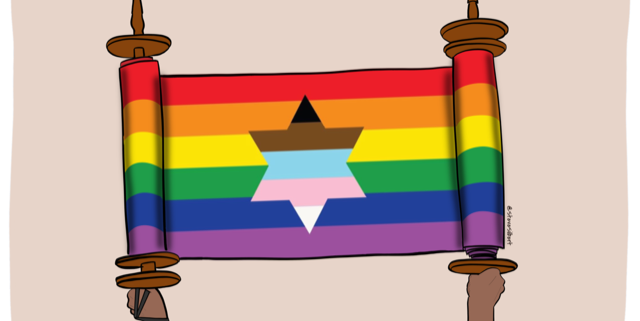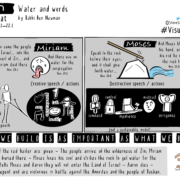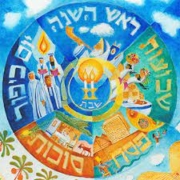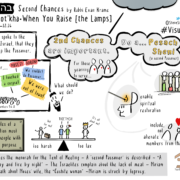Beha’alotcha: Queering Chronology (Numbers 8:1 – 12:16)
Part of an ongoing series that explores Torah through an ethic of social justice and building a world worthy of the Divine
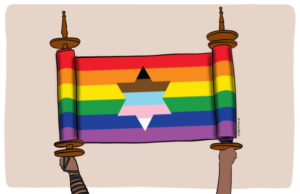
Existing as a Black, bisexual Jew is a big deal for me. My identity informs how I see the world, navigate my day-to-day life, and am seen and treated by others. Things aren’t always easy for Jews who share these labels. We’ve historically been marginalized and ignored in Jewish spaces, with white, straight, cisgender Jews being seen as what’s good and normal. And yet, despite all of this, LGBTQ+ Jews and Jews of Color still want to live Jewish lives and engage with the broader Jewish community, even if it means fighting to make our voices heard and our experiences known.
I can’t help but think about how our identities as “other” ties into this week’s Torah portion, Beha’alotcha. Chapter 9 of this parashah begins, “God spoke to Moses in the wilderness of Sinai, on the first new moon of the second year following the exodus from the land of Egypt…” (Numbers 9:1). Like other parts of the Torah, this “timestamp” provides context for what we are about to read, as well as chronology. However, a few Torah portions earlier at the start of the Book of Numbers, we read, “On the first day of the second month, in the second year following the exodus from the land of Egypt…” (Numbers 1:1).
Do you see the issue? The timestamps are not in chronological order. The Torah that is supposed to tell our story in a specific way. So what do we make of this out-of-order, contradictory text?
Our sages grappled with this very question; in fact, commentator Abraham ben Meir Ibn Ezra was once quoted as saying, “Ein mukdam u-m’uchar baTorah” (“There is no chronology in Torah,” or “There is no earlier and later in Torah”). This verse flips, dare I say, “queers” – the concept that Torah is supposed to read a specific way, encouraging us to read it with a sense of open-mindedness. Ibn Ezra says we are asking the wrong question. Instead of wondering why Beha’alotcha is out of place, we should instead be asking why it is important and what it can teach us.
Much like this portion, we as marginalized Jews also have a story to tell that may sound out of place from the majority. We have thoughts, feelings, and lived experiences that don’t fit the perceived norm, and yet, they are no less Jewish than anyone else’s. What I need from a Jewish community is not to focus on what I am doing there, but instead acknowledge that perspectives like mine – queer and Black – should have always been included just as they are.
I encourage those who still struggle with the concept that Jews don’t have to be straight, cisgender or white to read this portion and consider their own relationship to Torah. Do you honor Ibn Ezra’s declaration that the Torah doesn’t have a “before” and “after,” that it just “is”? If so, then I also compel you to understand that we as the Jewish people just “are,” no matter whom we love or how we look.
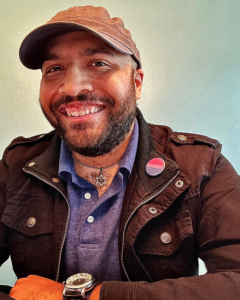
Chaim Ezra Harrison (he/him) is the Communications Manager at Keshet. A Black, bisexual Jew-by-Choice, Chaim loves being creative, learning random facts, and examining the intersections of queerness, Blackness, and Jewishness. Chaim has formerly served as Writer/Editor at the Union for Reform Judaism and Sr. Copywriter at CMR Ignite. He lives in the metro Detroit area with his wife Christy and 3 pets and is a board member at his synagogue Temple Beth El.

Artist Steve Silbert is on the Bayit Board of Directors and is Lead Builder for Bayit Games.

